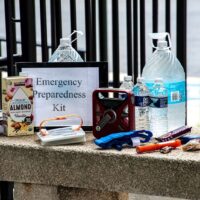What Does Self Reliant Mean


Self-reliance is a term that has been used to describe individuals who possess the ability to depend on themselves rather than rely on others for assistance or support. It’s a concept that has gained a lot of attention in recent years, as many people are seeking to become more independent and self-sufficient in their lives.
So, what does self-reliance really mean?
At its core, self-reliance is about being able to take care of oneself without relying on outside help. It’s the ability to be self-sufficient, both physically and mentally. It means having the skills and knowledge necessary to meet one’s own needs and solve one’s own problems, rather than depending on others to do so.
Self-reliance can take many different forms, depending on the individual and their circumstances. For some people, it might mean being able to grow their own food or fix their own car. For others, it might mean being able to manage their own finances or navigate a difficult situation without help from others.
But regardless of the specific skills or abilities involved, self-reliance always involves a certain mindset or way of thinking. It means being proactive and taking responsibility for one’s own life, rather than waiting for someone else to come along and solve problems. It means being resilient in the face of challenges and setbacks and being willing to learn and adapt as needed.
There are many benefits to cultivating a self-reliant mindset and lifestyle. For one thing, it can lead to greater self-confidence and a sense of empowerment. When we are able to take care of ourselves and solve our own problems, we feel more capable and in control of our lives.
Self-reliance can also help us build stronger relationships with others. When we are less dependent on others for help or support, we are able to approach our relationships from a place of strength rather than neediness. This can lead to more balanced and fulfilling relationships, where both parties are able to give and receive support in a healthy way.
Of course, self-reliance is not always easy to achieve. It can require a lot of hard work, dedication, and sacrifice. It can also involve taking risks and stepping outside of our comfort zones. But for those who are willing to put in the effort, the rewards can be significant.
So, how can we cultivate self-reliance in our own lives?
One way is to focus on building practical skills that will help us meet our basic needs. This might involve learning how to cook, garden, or fix things around the house. It might also involve developing financial literacy or learning how to navigate complex bureaucratic systems.
Another important aspect of self-reliance is developing emotional resilience. This means learning how to manage our emotions and respond to challenges in a healthy and constructive way. It means being able to stay calm and focused in the face of stress or adversity, and being able to bounce back quickly from setbacks.





